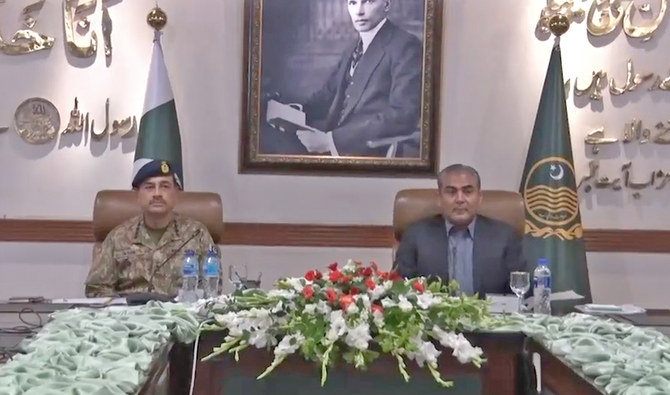ISLAMABAD: Army chief General Asim Munir said on Thursday actions would continue against “illegal activities” causing economic losses to Pakistan as it treads a tricky path to recovery following a $3 billion International Monetary Fund bailout.
The army chief was referring to, among other actions, a crackdown on dollar hoarding and smuggling that has led to a continuing appreciation of Pakistan’s national currency and which currency dealers have widely credited the country’s all-powerful army of spearheading. Tens of millions of dollars have poured back into Pakistan’s interbank and open markets since raids on black market operators began on Sept. 6.
While there have been other attempts to curb the black market when the rupee has been under stress, the latest push came after licensed dealers requested army chief General Munir to take action, rather than leave it solely to the civilian caretaker government that was put in place last month to run Pakistan till elections, currently expected to be held early next year. Munir had reportedly promised dealers “transparency in dollar exchange and interbank rates.”
During a visit to Lahore, General Munir said the military would continue to assist the government in its economic recovery plans.
“Law Enforcement Actions against spectrum of illegal activities will continue with full force in collaboration with the LEAs and the concerned government departments to rid Pakistan from the substantial economic losses it continues to suffer due to pilferage done by different methods,” the army chief said.
Last week, Malik Bostan, chairman of the Exchange Companies Association of Pakistan (ECAP), told reporters a task force was made after the problem of dollar hoarding and smuggling was escalated to the army chief.
Controlling the open market rate is critical for Pakistan following a $3 billion bailout from the IMF that was agreed in July to help avert a sovereign default.
An IMF demand that the difference between the interbank and open market does not exceed 1.25 percent will be a key part of discussions set to begin later this month, before the release of the next tranche of the bailout.
















